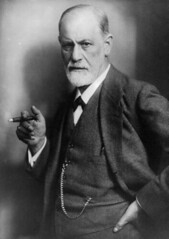| 5468454382 | Consciousness | the awareness of the sensations, thoughts, and feelings we experience at a given moment |  | 0 |
| 5468454383 | 3 Level of Consciousness | The conscious, preconscious, and unconscious according to Freud |  | 1 |
| 5468454384 | Conscious Level | Info about yourself & your environment that you are currently aware of |  | 2 |
| 5468454385 | Nonconscious Level | Body processes controlled by your mind that we are unaware of such as heart beat and breathing |  | 3 |
| 5468454386 | Subconscious Level | The person is somewhat aware but not fully conscious of what is occurring |  | 4 |
| 5468454387 | Unconscious Level | The person is not aware of the repressed feelings and events that exist here | 5 | |
| 5468454388 | Sleep | When the nervous system is inactive, the eyes are closed, the postural muscles are relaxed, and consciousness is suspended for a time. |  | 6 |
| 5468454389 | Sleep Cycles | our typical pattern of sleep | 7 | |
| 5468454390 | Sleep Stages | 1,2,3,4, & REM |  | 8 |
| 5468454391 | REM Sleep | "Paradoxical" Sleep: heart rate increases, blood pressure rises, breathing rate increases, and dreams usually occur |  | 9 |
| 5468454392 | Sleep Disorders | insomnia, REM sleep behavior disorder, restless leg syndrome, periodic limb movement disorder, and excessive sleep |  | 10 |
| 5468454393 | Insomnia | The most common sleep disorder in which people have persistent problems falling asleep or staying asleep |  | 11 |
| 5468454394 | Narcolepsy | A rare sleep disorder in which people fall asleep at unpredictable or inappropriate times |  | 12 |
| 5468454395 | Sleep Apnea | It is a common disorder in which you have one or more pauses in breathing or shallow breaths while you sleep. |  | 13 |
| 5468454396 | Night Terrors | a form of sleep disorder in which a person partially awakens from sleep in a state of terror |  | 14 |
| 5468454397 | Dreams | a series of thoughts, images, and sensations occurring in a person's mind during sleep. |  | 15 |
| 5468454398 | Freudian Dream Interpretation | Dreams represent unconscious wishes the dreamer wants to fulfill |  | 16 |
| 5468454399 | Activation-Synthesis Dream Theory | Dreams are the result of random activation of various memories, which are tied together in a logical story line |  | 17 |
| 5468454400 | Information-Processing Dream Theory | The possibility of dreams being tools that help process information such as stress or daily concerns |  | 18 |
| 5468454401 | Hypnosis | The lose of control over voluntary behavior due to being controlled and manipulated by another person |  | 19 |
| 5468454402 | Posthypnotic Amnesia | the inability in hypnotic subjects to recall events that took place while under hypnosis. |  | 20 |
| 5468454403 | Posthypnotic Sugesstions | A suggestion made to a hypnotized person that specifies an action to be performed after awakening. (ex: snap of fingers) |  | 21 |
| 5468454404 | Role Theory of Hypnosis | a person is not actually in an alternate state of consciousness, but rather is voluntarily acting out the role of a hypnotized person |  | 22 |
| 5468454405 | State Theory of Hypnosis | explains hypnosis as an altered state of consciousness pointing to pain control and health benefits reported |  | 23 |
| 5468454406 | Dissociation Theory of Hypnosis | Splitting off of mental process into two separate levels of consciousness-one in touch with reality & the other obeying the hypnotist's suggestions |  | 24 |
| 5468454407 | Psychoactive Drugs | Broad category (not specific type) of drugs that affect the chemistry of the brain inducing an altered state of consciousness |  | 25 |
| 5468454408 | Agonists | a drug that mimics neurotransmitters; fitting into the receptor site on a neuron; passes through the blood brain barrier |  | 26 |
| 5468454409 | Antagonists | a drug that blocks the neurotransmitters from receptor cells preventing the natural neurotransmitter from using that site altering the natural levels of neurotransmitters in the brain |  | 27 |
| 5468454410 | Tolerance | needing higher dosage of a drug to experience a high, requiring an increase in concentration to achieve the desired effect. | 28 | |
| 5468454411 | Withdrawal | Various symptoms that may occur upon the abrupt discontinuation or decrease in intake of medications or recreational drugs | 29 | |
| 5468454412 | Stimulants | a drug or substance that raises levels of physiological or nervous activity in the body. |  | 30 |
| 5468454413 | Depressants | drugs or substances that slow down activity in the body and brain (alcohol, Valium, anti-anxiety drugs) | 31 | |
| 5468454414 | Hallucinogens (Psychedlics) | Drugs that cause changes in our perception of reality (ex: LSD, peyote, mushrooms, marijuana) |  | 32 |
| 5468454415 | Opiates | highly addictive drugs derived from opium (heroin, meth, morphine) that elevate endorphin levels, rapidly alter brain chemistry, & create withdrawal symptoms |  | 33 |
| 5468454416 | William James | Wrote "The Principles of Psychology" and believed that the value of an idea is dependent upon its usefulness in the practical world rather than its absolute truth |  | 34 |
| 5468454417 | Sigmund Freud | He considered dreams to be an important tool in treating patients focusing on the latent content of dreams |  | 35 |
| 5468454418 | Ernest Hilgard | Was an American psychologist and professor at Stanford University. He became famous in the 1950s for forming the Dissociation Theory of Hypnosis and how this may relate to pain control. |  | 36 |
| 5468970660 | hypnotic suggestibility | The term used by role theory to suggest that some people are more easily hypnotized than others | 37 |
AP Psychology States of Consciousness Flashcards
Primary tabs
Need Help?
We hope your visit has been a productive one. If you're having any problems, or would like to give some feedback, we'd love to hear from you.
For general help, questions, and suggestions, try our dedicated support forums.
If you need to contact the Course-Notes.Org web experience team, please use our contact form.
Need Notes?
While we strive to provide the most comprehensive notes for as many high school textbooks as possible, there are certainly going to be some that we miss. Drop us a note and let us know which textbooks you need. Be sure to include which edition of the textbook you are using! If we see enough demand, we'll do whatever we can to get those notes up on the site for you!

